- Home
- Beryl Kingston
Off the Rails Page 5
Off the Rails Read online
Page 5
She was wrong, of course, for there’d been one pair of eyes in the congregation that never missed a face or a trick. One very sharp pair of eyes and they belonged to Mrs Hardcastle.
‘Was that your Janey I saw in church?’ she said to Mary Jerdon, as they walked towards the Howsham road.
Mary admitted that it was.
‘I trust she’s keeping well.’
‘Fair to middling.’
Even though Mary was turning her head away and looking as discouraging as she could, Mrs Hardcastle persisted with her interrogation. ‘She brought the baby with her, I think.’
‘Aye, she did,’ Mary said, looking at her fiercely, ‘and let me tell ’ee, she’s a very pretty baby and a very good one. We never had a peep out of her the whole time. Not one peep.’ She looked at her husband for support but he was far too much in awe of Mrs Hardcastle to venture a word on such a delicate subject and merely nodded.
‘I’m uncommon glad to hear it,’ the midwife said. ‘Good babies are worth their weight in gold, as I should know. I’ll not judge a child by the sins of its parents.’
‘I’m glad to hear you say it,’ Mary told her, even more fiercely. ‘For I tell ’ee, ma’am, if I ever hear so much as one bad word bein’ spoke against my granddaughter, I shall have summat to say what’ll roast ears. And now as we’ve reached our footpath, I give ’ee good day, ma’am.’
But Mrs Hardcastle didn’t seem to be aware how close they were to a quarrel and stood in her way, blocking their path with her bulk. ‘You’ve heard the news about Philadelphia Hudson, no doubt,’ she said.
Hudsons again, Mary thought. Don’t she know how we feels about ’em? But it was obvious that Mrs Hardcastle wasn’t going to move until she got some sort of answer, so she offered, ‘We heard she was poorly.’
‘Aye, so she is,’ Mrs Hardcastle told her. ‘She has the coughing sickness mortal bad, poor woman. Mortal bad. Fading away afore our eyes she is. I doubt she’ll last till Christmas.’
Mr Jerdon ventured an opinion as one seemed called for. ‘She’s wore herself out a-runnin’ that farm,’ he said. ‘All those great girt boys to care for. ’Tis no wonder she’s poorly.’
‘You’ve the right of it there, Mr Jerdon,’ Mrs Hardcastle told him. ‘She’s wore out, poor woman, and that’s the truth of it.’
‘We must be getting on,’ Mary Jerdon said. And, as the midwife was finally standing aside, she strode off along the path, leaving her husband to come puffing after her. She was so cross she could hardly contain herself.
‘Hudson! Hudson! Hudson!’ she cried. ‘I’m sick of the t’sound of the name. What makes her think I care two pins about them? They can all take ill an’ die for all I care. Pernicious critters every which one of ’em, from that vile George on down, and he ought to come to a bad end if there’s any justice in the world. Treating our Janey so. A thoroughgoing bad family. All tarred with t’same brush. How dare she make us talk of them and my Janey in tears for not seein’ us, poor child. ’Tis cruel, so ’tis, and she should know better than to burden us. I hopes that George burns in hellfire so I do.’
‘Soon be home, Mother,’ Mr Jerdon tried to comfort. ‘’Tis no distance now. Soon be home.’
‘Don’t keep saying that!’ she shouted at him. ‘’Tis no help to anyone. Damned Hudsons.’
He followed her meekly. When a fury was on her, what else could he do?
The damned Hudsons were in the middle of a family argument.
‘We must tell him,’ Ann was urging. ‘He’s her brother when all’s said and done.’ She might be a mere nineteen and so skinny she looked as if the slightest wind would blow her over, but now that Philly was ill someone had to mother the family and see that the meals were cooked and try to calm the brothers when they were angry, as they were at that moment, torn by fury that their sister was so ill and that they were powerless to help her, shamed by the memory of how they’d parted with their feckless brother and angry because he’d made this so difficult for them by not writing to them.
‘Five months he’s been in York,’ John said, ‘and we’ve not had a single word out of him. Not one single word. Oh, I know our Philly’s fond of him but fondness cuts both ways. He should’ve written.’
‘He’s been too busy feathering his nest,’ Thomas sneered. ‘That’s my opinion on it. Looking after hisself. Same as allus. What was it Mrs Hardcastle said? Dressed to the nines.’
‘Philly wants to see him,’ Ann said, standing her ground, although their anger was making her feel shaky. ‘We ought to tell him and that’s my opinion on it. How is he to know if we don’t tell him? And what if she were to die and he didn’t even know she were ill. What would we say then?’
‘She won’t die,’ William told her fiercely, his face strained with grief. ‘I won’t allow it.’
‘And how will ’ee stop it, tha great blamed fool,’ Robert roared at him. ‘Tell me that. No one can stop it. There’s nowt we can do. Nowt. Not one blamed thing.’
William pressed his palms against the table top to steady himself and leant across towards his brother. ‘Don’t,’ he begged. ‘Don’t say such things. I can’t bear it.’ He was close to tears, his face distraught and his eyes red-rimmed.
Ann was so upset she couldn’t find any words either to stop them or to comfort them. She stood twisting the hem of her apron in both hands as if she could wring an answer from it until John came to their rescue.
‘I will write him a short letter and tell him she’s ill,’ he said. ‘In Christian charity I can do no less.’
‘And he’ll go his own sweet way,’ Thomas warned. ‘I doubt you’ll even get an answer.’
The letter was delivered just as George had started to serve a prestigious customer. It couldn’t have been a worse moment. He glanced at it, recognized his brother’s handwriting and put it under the counter to be dealt with later. Then he turned his attention to his customer and, in the satisfaction of an excellent sale, well earned, he forgot all about it. It wasn’t until the end of the day when he went to the counter to take out the account book that he found it again and this time opened the seal and read it, quickly. The news didn’t trouble him. He assumed it was a rheum of some kind or a winter chill and it didn’t occur to him to wonder why John should have written to him about something trivial. Poor old Philly, he thought, and took the account book into the office.
During the last three months he’d organized the back parlour into a workplace where accounts were written up every evening, deliveries noted as soon as they arrived and wages paid out on a Saturday. It pleased him to see how well ordered it was and preened to think it was all his doing. Trade was good that autumn and, on the strength of it, he’d persuaded Mrs Bell and Richard to raise his wage to five shillings a week. Now he had two good suits of clothes, several fine shirts, two pairs of fashionable boots and more than a dozen cravats, and with money in his pocket he could spend his evenings in the local hostelries enjoying a drink or two with his new cronies, and could pay for a whore when the itch grew too troublesome.
And of course there was always Uncle Matthew to visit and flatter into good humour. He was doing extremely well with that gentleman. He’d found out how to make him laugh and how to tease him into a good humour when he’d grown maudlin with too much grumbling. If he played his cards right, there would be money in this acquaintance. And he meant to play his cards to perfection. He was so happy dreaming the way into his future that he forgot all about John’s letter. So it was rather a shock when another one was delivered to him three weeks later.
Poor old Philly, he thought as he opened the seal, she must be worse. I ought to go and see her.
But it was too late for visiting. The second letter had been written to tell him that his sister had ‘passed away’ and to inform him that the funeral was arranged for the following Thursday. It was a cold, formal letter and at the close of it, John said stiffly that he ‘expressed the hope’ that George would find himself able to attend. It seemed ha
rsh and uncaring. Does he imagine I would stay away? George thought. She was the best of the bunch. We all knew that. As much of a mother to us as Ma herself. Of course I’ll be there. I’ll hire myself a horse and ride there. Then I can ride back to York when it suits me.
It was a dark, sad day and the wind out there in Scrayingham churchyard bit through to their bones. Both Philly’s sisters wept throughout the committal and her brothers were red-eyed. ‘Best of the bunch,’ they said to one another when the burial was over. ‘We’ll not see her like again.’
George stood a little apart from the rest of them. He felt uncomfortable and not at all sure that he ought to have been there and being ignored was making him feel worse. Eventually Ann looked across at him and, after a few words with her brothers, she walked across the churchyard and put her arms round him. She was crying so much she couldn’t say anything but that made it easier for him. All he had to do was hold her and make soothing noises into her hair. And then William came over and asked him if ‘wor all reet’ and they spoke for a few minutes.
‘It don’t seem fair that she should die,’ George said. ‘Not so young and not when she was allus so good.’
‘Best of the bunch,’ William said.
And as they were in a churchyard, George said ‘Amen!’
It was a matter of honour with him not to weep until he was riding back to York. Then he cried so much he couldn’t see the road. But it didn’t matter because there was nobody there to see him and luckily his horse knew most of the bridle paths round York and was entirely sure of his way back to the stables.
5
WHEN MILLY WAS twelve months old, she took her first staggering steps from chair to chair in the kitchen to the delight of everyone in it. Aunt Tot, who’d quite forgotten that she’d ever described the child as a millstone and would have been mortified to have been reminded of it, declared that she was the prettiest little dear and so entertaining you’d never believe it.
‘You never know what’ll happen next,’ she said happily to Jane. ‘Not with this one.’
What actually happened was that Jane had a visitor and one she didn’t expect.
She and Milly were out in the kitchen garden, picking the first of the lettuces to make a green salad, when they saw her stomping up the garden path towards them. Milly looked up at once and smiled but Jane was puzzled.
‘Mrs Hardcastle, ma’am,’ she said, pausing in her work. ‘Give ’ee good day.’
The midwife sat on the garden seat and took off her bonnet to mop her forehead with a kerchief. ‘I’ve come here in such a rush, you’d never believe,’ she explained. ‘Your aunt said you were out here. Oh my stars! I was in the carriage and on my way afore I could so much as catch my breath. You’ll see why when I tell ’ee. Baby’s coming on well, I see.’
‘Yes, ma’am,’ Jane said, wondering what this was about. ‘Very well.’
‘And you’ve plenty of milk?’
‘Yes, ma’am.’
‘Well now,’ Mrs Hardcastle said, donning her bonnet and folding the kerchief neatly on her lap. ‘I’ve come to ask a favour. A very great favour it has to be said. You are still feeding the baby, I trust and believe.’
‘Indeed, ma’am.’
‘I’m glad to hear it,’ Mrs Hardcastle said, ‘for that’s the gist of my errand. I’ve just this minute come from Foster Manor at Scrayingham, where I’ve been all night. A difficult birth. Sir Mortimer ordered his own carriage to bring me here so you can see how urgent this is.’
There didn’t seem to be anything for Jane to say so she waited.
‘The long and short of it,’ Mrs Hardcastle said, ‘is that Lady Fitzwilliam died, early this morning. God rest her soul! The child survived and seems healthy enough, but he needs feeding. In short he needs a wet nurse. I thought of you directly. ’Twould be a fine position. The Fitzwilliams are a wealthy family and would treat you well. You would have your own rooms and a serving maid to assist you and so forth. What do ’ee say?’
The answer was immediate and direct. ‘I’d rather not, Mrs Hardcastle. I’m settled here, ma’am, and my Milly knows her way about and has friends in the household and plenty of folk to pet her and talk to her. Besides which, I might not have enough milk for two babies and I wouldn’t want her to go short. I’m beholden to ’ee for thinking of me, but no, ma’am, I’d rather not.’
‘Now let’s not be hasty,’ the midwife advised. ‘’Tis worth consideration. As I’m sure you’ll agree when you starts considering. The Manor would be a very fine place for a child to grow up. They eat well there. They have a kitchen garden and a park for exercise and a stable full of horses and ponies for the children and a library where the family children learn to read and write, which would be a very great advantage to your little Milly. I can understand you not wanting to leave your friends, but it could be the chance of a lifetime. Besides which it’s a mere half mile from your mother’s cottage, happen even less. Your parents live on the Fitzwilliam land, do they not?’
That was an argument to give Jane Jerdon pause. To be near her mother was something she’d wanted all year long. ‘Well …’ she said. ‘There is that.’
Mrs Hardcastle pressed home her advantage. ‘Indeed there is,’ she said, ‘and not to be sniffed at. I daresay they’d allow you one of their carriages to take you visiting. Then you could take Milly along and your ma could see the both of you.’
Jane was torn. It would be a wonderful thing to be able to see her ma whenever she wanted to but she didn’t want to take on the care of another baby – and somebody else’s baby at that – nor to be at the beck and call of a family of strangers. She noticed that Milly had taken one of the lettuces from the trog and was busy tearing one of its leaves into small pieces but she couldn’t summon up the energy to take it from her. Not when she had all this to think about.
‘I’ll have to ask Aunt Tot,’ she said, thinking, if she says she can’t spare me, which she well might, then the matter will be settled and I won’t have to go.
‘Of course,’ Mrs Hardcastle said and stood up at once. ‘That child is eating the lettuces,’ she said. ‘It won’t do her digestion any good.’
That child allowed her mother to remove the half-chewed leaf from her mouth and was delighted to be lifted onto her hip. Then they all walked into the farm so that Aunt Tot could settle their fate.
It was rather a disappointment to Jane that her aunt had no doubt about it at all. ‘Of course tha must go,’ she said. ‘’Twould be folly not to.’ And when Jane made a grimace, ‘You’ll never regret it, believe me. It could be the making of you. And think of that poor baby with no one to nurse him. Oh no, you go, child. You’re just the right one. We shall miss you, there’s no gainsaying that, but you must take your chance.’
So Jane had to pack a bag with her belongings and Milly was given a sugar plum from Aunt Tot’s jar so that she would have something to keep her happy during the journey and Audrey came running up from the dairy to kiss them goodbye and then they were climbing into the carriage, which was very grand and gave Jane second thoughts about the advisability of that sugar plum, and they were off, trotting through the green fields in the warmth of the summer sunshine towards their new lives.
George Hudson was walking through the sunshine that morning too, only in his case it was a decidedly unpleasant experience for he was in a foul temper and an unpleasant place. At that moment, he was passing the Shambles, where the butchers had been particularly busy. The air around the stalls was nauseous with the smell of spilt blood and raw meat, the gunnels were clogged with blood and offal and the narrow street was crawling with flies and bluebottles from one end to the other. ‘Foul!’ he said to himself and it wasn’t just the butchery that was annoying him.
Mrs Bell had insinuated herself into the shop that morning to make an announcement. ‘I want you – um – both to know that I am considering the – um – possibility of taking Richard into partnership.’
George couldn’t trust himself to say an
ything. To give that silly boy a partnership was just plain stupidity. Can’t she see what a simpleton he is? He knows nowt and thinks he knows everything, and that’s the mark of a fool if ever I saw one. If you need a partner, he thought, trying not to glare at his employer, you should have took me. I’ve got the ideas and the energy for it. I work. I’m making summat of this shop. Not that fool Richard. Very well then. If you make him a partner, you can pay me a guinea a week from that moment on, what I’m well worth. And I’ll see exactly how it’s done and the day I’m twenty-one I’ll make you take me into the firm too. I’ll not be overlooked, not when I work so hard and make so much money for ’ee. Damned fool woman!
He carried his grudge all round the city, scowling at passers-by and kicking at corners. It wasn’t until he saw one of the town’s worthies approaching that he controlled himself and changed his expression. He was beginning to cultivate the men in high places for one day they were going to be useful to him. One day he was going to be as rich and powerful as they were – or even richer.
Jane Jerdon was overwhelmed by her first sight of Foster Manor. It was the grandest building she’d ever seen, all that dazzling white stone and those long rows of great tall windows and that huge front door framed by those great white columns, standing up so tall as if they were guarding the place. They must be very rich, she thought, as she followed Mrs Hardcastle through the side door, for there seemed to be servants everywhere, all of them in different uniforms. They were greeted by the housekeeper who wore a spotless grey gown and a snow-white cap and looked like someone who had to be obeyed.
Mrs Hardcastle spoke to her politely and softly. ‘How has he been, ma’am?’ she asked.

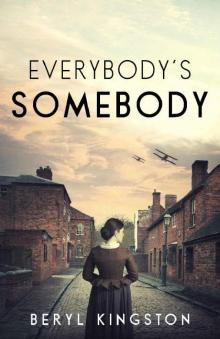 Everybody's Somebody
Everybody's Somebody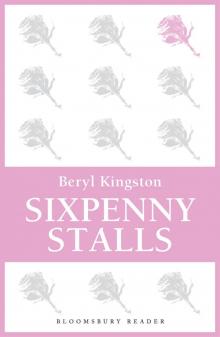 Sixpenny Stalls
Sixpenny Stalls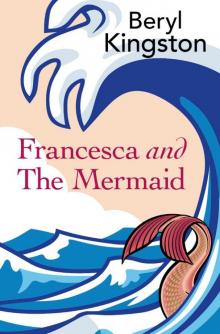 Francesca and the Mermaid
Francesca and the Mermaid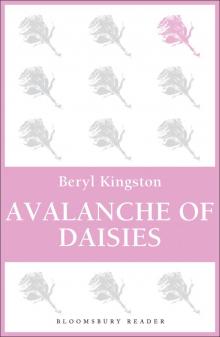 Avalanche of Daisies
Avalanche of Daisies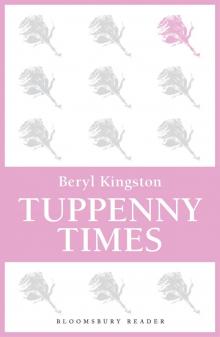 Tuppenny Times
Tuppenny Times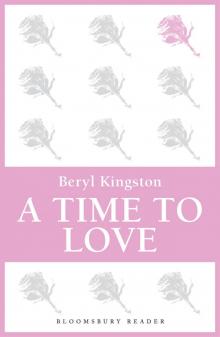 A Time to Love
A Time to Love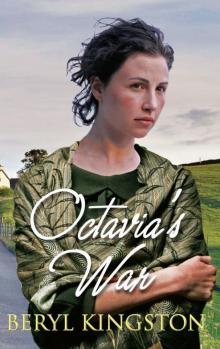 Octavia's War
Octavia's War Gemma's Journey
Gemma's Journey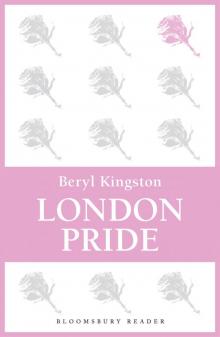 London Pride
London Pride Gates of Paradise
Gates of Paradise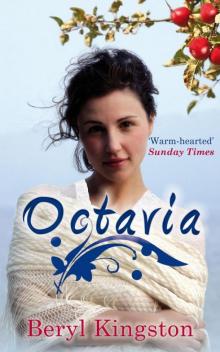 Octavia
Octavia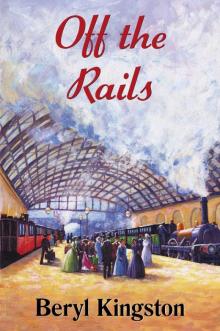 Off the Rails
Off the Rails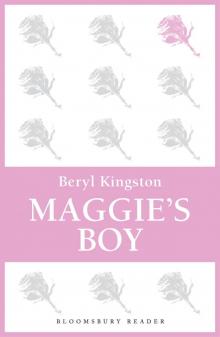 Maggie's Boy
Maggie's Boy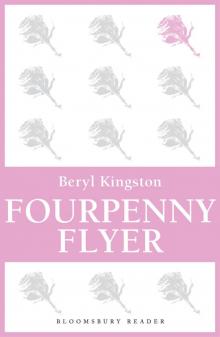 Fourpenny Flyer
Fourpenny Flyer